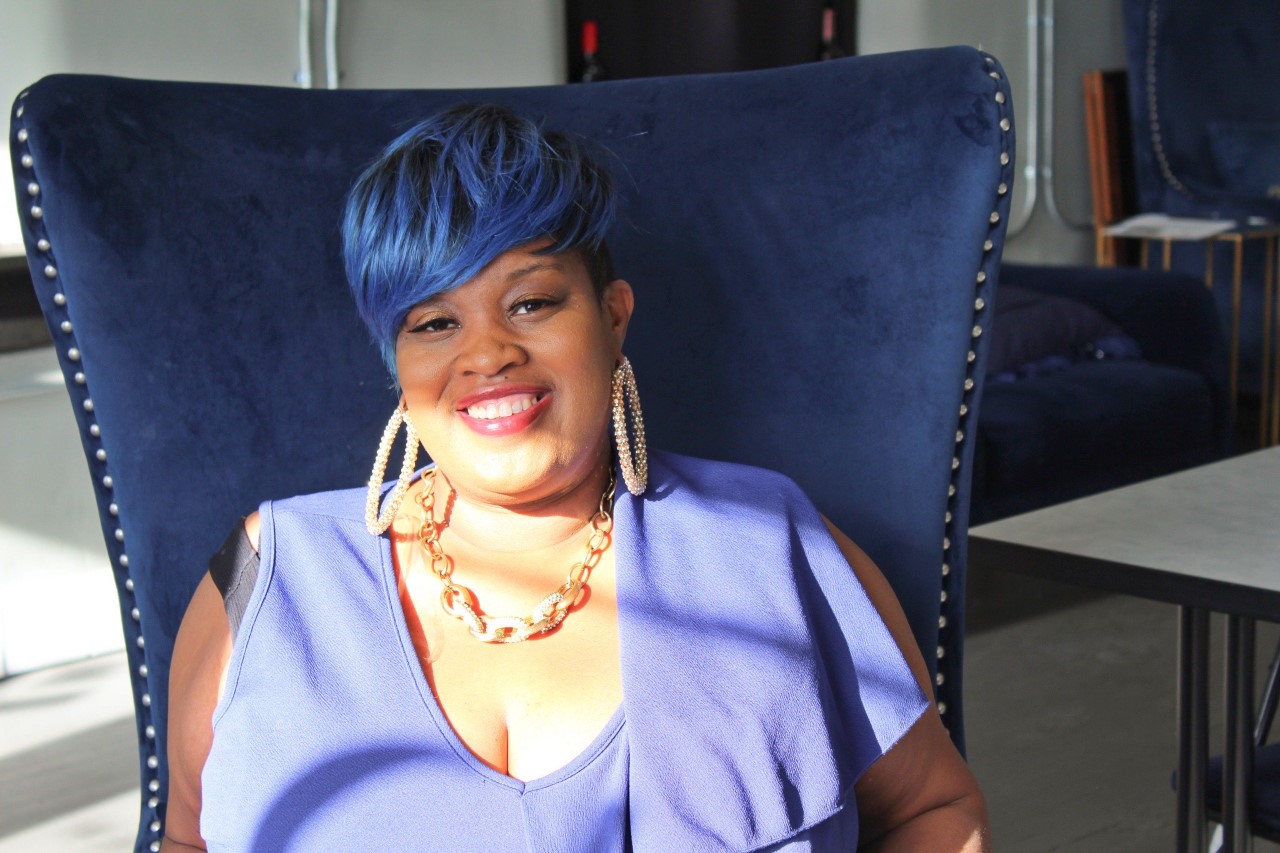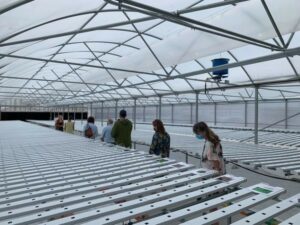Black History-in-the-Making: Tae Winston
Dayton Powerhouse supports Black-owned businesses in the Dayton area, brings commerce back into the community
By Amber Wright, Development and Marketing
Every February we celebrate the accomplishments and contributions of Black Americans throughout history.
A simple Google search will generate endless pages filled with iconic pictures: Martin Luther King Jr. addressing the crowds in Washington, Muhammed Ali standing over a knocked-out Sonny Liston in the boxing ring, protestors holding signs while marching in unity, and Rosa Parks poised with strength and dignity in front of a bus.
These images are snapshots of pivotal moments in American history, cataloging the struggle of our nation as we began the transition from slavery and segregation to civil rights and equality.
At The Foodbank, we realize the fight is not over yet.
Our organization is dedicated to addressing the root causes of poverty, which includes factors such as systemic racism, redlining, and other policies that have contributed to racial inequity. It is crucial that we have these conversations so we can develop sustainable solutions.
While it is tempting to reiterate the atrocities that took place in our country and the extraordinary men and women who fought (and often died) to bring about change, that information is better taught in school textbooks where it can be discussed in-depth.
For this blog, we want highlight history-in-the-making with a profile of a local woman who is part of the solution for systemic change. Tae Winston is a Black entrepreneur who is using her talents to improve local communities and the small businesses they house.
Tae Winston: Entrepreneur
Tae Winston has made it her business to help other local businesses.
In a time of pandemics, natural disasters, rising inflation and economic instability, the people who often suffer most are small business owners. Factor in decades of redlining, discrimination, and food deserts, many historically Black Dayton neighborhoods have been deeply affected. Winston’s success with the Dayton Powerhouse is helping to reverse the damage by providing the space and guidance for local entrepreneurs to thrive.
The Dayton Powerhouse is a collective created by Winston which also sponsors community events. It includes two buildings housing various businesses, an educational center and a bus that has been converted to a mobile fashion store.
Her first brick-and-mortar store, the Entrepreneur Marketplace, was opened in 2019 as a space for local entrepreneurs to have a safe place to connect, shop, and sell their products or services. Local vendors can display their product without having to finance all the overhead costs for things like rent, electric, staff and property maintenance. The Marketplace comes staffed with its own manager, so independent sellers can still work a normal job while their wares are being sold.
Located in the Wright Dunbar business district, it also provides a place for the community to buy local in an area where many businesses had permanently closed.
“When I first came to Wright Dunbar it was a food desert and business was dead,” said Winston. “It inspired me to bring a chef into the Marketplace and have food trucks outside to give people options. Now the district is drawing in other businesses and beginning to rebuild.”
The launch was so successful that she opened two additional brick and mortar locations. The Entrepreneur Shoppe, also located in the Wright Dunbar business district, is another store housing more than 30 Black-owned businesses. The Entrepreneur Connection is an academy that works with small business owners by providing workshops, resources, guidance, and support. It also can be rented out to other community members who need space to host classes of their own.
“My thing is, anyone can get an LLC and become a business, but can you sustain it? Can you grow it and make a profit? That’s what we offer,” Winston said.
Opening the Connection is continuously helping the community by giving local small businesses an opportunity to gain footing in a market dominated by large corporations. With a pandemic induced shutdown and an immediate rise in inflation, bigger businesses are often the only ones able to survive. The Marketplace and Shoppe enables smaller vendors to access space. The Connection coaches them on how to use it.
In addition to facilitating commerce in her brick-and-mortar stores, Tae Winston attracts customers with her organized events. The Fashion Meets Food Truck Rally has hosted more than 50 vendors and 15 food trucks in Trotwood. Winston also created what former mayor Nan Whaley officially proclaimed “Wright Dunbar Day” on June 27th, 2021. This event has already created revenue for 80-100 small businesses and 30 food trucks, according to Winston. Her events have the capacity to feature as many as 300 merchants. This generates cash flow that stays in the community.
The Dayton Powerhouse did not pass unscathed from Covid. All the large events had to be canceled and her stores saw a decline in sales. Winston adapted with a curb-side pickup policy and managed to keep her doors open. “Covid just came and changed the game,” she said. “I’m still struggling to make up for the losses, but I’m making it work.”
Winston says she faced the same barriers many Black entrepreneurs face when first entering the market: lack of capital and support. Her entire business venture has been self-funded without grants or a business loan. That is a problem many people face in areas that have been redlined, often disproportionately effecting people of color. After securing her brick-and-mortar retail space, she encouraged other small businesses to share it.
While most small businesses she works with are Black owned, she offers her services to everyone.
“I don’t care what color you are. I don’t just cater to Black vendors, I help all races,” she said. “I am proud to be a Black business owner, but I am here for everybody. What I do is out of love. That’s how I was raised.”
Experiences with discrimination motivated Winston to help other aspiring business owners by being more inclusive and supportive. “I was a vendor that was thriving and doing well, but I was pushed out of my space for trivial reasons,” Winston explained. “That’s what made me want to create a safe place for people to thrive where they wouldn’t be pushed out like I was.”
All of Winston’s efforts have revitalized the community so greatly that Winston’s business was selected for the Ohio Business Spotlight and received a certificate of commendation from Ohio Secretary of State Frank LaRose. The recognition is given to organizations for transforming the community and educating job creators about what it takes to succeed.
“I’m more concerned with helping others instead of only building myself up,” she said. “I think the community would look different if more people were willing to collaborate, share information and support each other in life and business. We can all win.”
The Dayton Powerhouse has worked with more than 350 Black-own businesses in the last three years. More than 25 vendors have already grown into their own independent locations which are still sustaining. Annual events like Wright Dunbar Day bring the community together while supporting local and minority-owned businesses.
Winston credits her success to hard work and to being part of the community, not just doing business in it. She has taken a seat on the Greater West Dayton Incubator Advisory Council where she can also be a voice for the community she serves.





No comment yet, add your voice below!